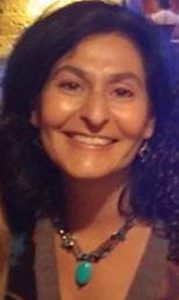Cultivating Change for Inclusive Practice: Creating a Community of Learners

By Lisa Mauro-Bracken, Head of Department Health and Well-being; School of Allied Health and Community
This case study illustrates an innovative, department-wide approach to learning and professional development of staff. Higher Education encounters increasing numbers of students from diverse linguistic, cultural and ethnic backgrounds requiring personalised learning (V1; V2). To cultivate a ‘new’ inclusive culture within the Department of Health and Well-being, I organised a workshop introducing Universal Design for Learning (UDL) as part of a team away day (K5).
UDL is a framework to improve and optimize teaching and learning for all people based on scientific insights into how humans learn (CAST, 2019). The UDL framework supports inclusive practice and relies on multiple means of: ‘engagement,’ ‘representation’ and ‘action and expression.’ In other words, a focus on personalised learning and meaningful choice to ensure all students can access the curriculum in a way that develops their strengths.
To embed this approach within the department, I delivered workshops on implementing University of Worcester’s Inclusive Assessment Policy. This was implemented using Technology Enhanced Learning and Blackboard in an inclusive way and auditing module resources using de Montfort University’s UDL self-assessment checklist. This proved to be an effective reflective tool to further inform learning, teaching and assessment (Bracken, 2019; Moriarty and Scarffe, 2019). The values underpinning our department are student-focused and this was reflected in our approach of implementing new ideas, as it required staff and student involvement and regular consultation with students about inclusive design for learning. Staff enthusiasm for the innovative approach was balanced against accepting a response of hesitancy and fear of change (Dasborough, Lamb and Suseno, 2015). However, one colleague stated ‘UDL allows me… [to] reflect, listen, change my pedagogical approach…getting input from colleagues and feel safe[ty] in questioning.’
The needs of two visually impaired students increased the immediacy of implementing UDL/inclusive practices to meet accessible changes advised by Disability and Dyslexia Services entitlements (V1; V2). Alternative formats and activities were designed which benefitted all students while highlighting the importance of identifying the learning strengths of individuals (Entwistle, 2009; UDLonCampus, 2019) (K4; V1; K6). Student engagement and experiences improved, ‘resources clear… accessible… able to use learning in practice.’ (FDHS student, 2018). For example, one student with SpLD who chose inclusive assessment options moved from a high C range to achieving a UW Academic Scholarship. Our departmental periodic review also commended our practice. Successful outcomes empowered staff with the confidence to ensure new developments start from UDL/inclusive principles (A5). The on-going student voice is important when anticipating diverse needs and creating meaningful, inclusive activities (Meyer, Rose and Gordan, 2014) (V1; V2; K5). Therefore, UDL provides students with a safe place to share insights with staff and peers by embedding on-line software such as Padlet, surveys and check in sessions at the end of the day to feedback on their learning (A4).
Having a better understanding of students’ expectations of Higher Education generates innovative approaches to academic skills development, transition and progression (A1; K3; V1; V2). The Team away days focussed on supporting knowledge, skills and capacity building in inclusive practice (A1; A5; K6). Our partner college attendees reported a ‘better understanding of student learning and engagement… anticipating what to include each year’ through using UDL framework to reflect on practice (Moriarty and Scarffe, 2019). The team commented that they had been ‘given opportunity… focused on my development… time to learn from colleagues… to share the information for team development [A4].’ UDL has helped us to become a strong community of professional practitioners and the idea of inclusivity to become a reality. Enhanced professional collegiality is a hallmark of our practice commended in the DPR (A5; A4; K2; K3; V1; V4). For staff, this has been ‘a supportive challenge… not an edict to obey…. eager to learn more’ as we aim to create inclusive opportunities to problem solve, make sense of complex concepts and focus on safe learning (CAST, 2019) (A1; A5).’
References:
– Bracken, S. (2019) Developing a Systematic Whole School Approach to Inclusive Practice Through UDL. Educational Developments 20 (1), 24-27).
– CAST (2019). Universal Design for Learning Guidelines version 2.2. Available from: http://udlguidelines.cast.org. [Accessed 15 July 2019].
– Dasborough, M., Lamb, P., and Suseno, Y. (2015). Understanding emotions in higher education change management. Journal of Organizational Change Management, 28 (4), 579-590. doi: 10.1108/JOCM-11-2013-0235
– Entwistle, N.J. (2009) Teaching for understanding at university: deep approaches and distinctive ways of teaching. Basingstoke, Palgrave MacMillan
– Meyer, A., Rose, D.H., Gordon, D. (2014) Universal Design for Learning, Theory and Practice. Wakefield, MA. CAST Professional Publishing.
– Moniarty, A and Scarffe, P. (2019) Universal Design for Learning and Strategic Leadership: a whole university approach to inclusive practice. In Bracken, S. and Novak, K. (eds) Transforming Higher Education Through UDL: An International Perspective pp 50-67. Abingdon, Routledge. UDLonCampus (2019) Getting started in UDL. Available from: http://odlondoncampus.cast.org/page/udl_institutions
– University of Worcester (2017) Staff guidance for Inclusive Assessments and making reasonable adjustments (UoW Assessment Policy). Available from: http://www2.worc.ac.uk/student-services/documents/staff-guidance-for-inclusive-assessments.pdf
